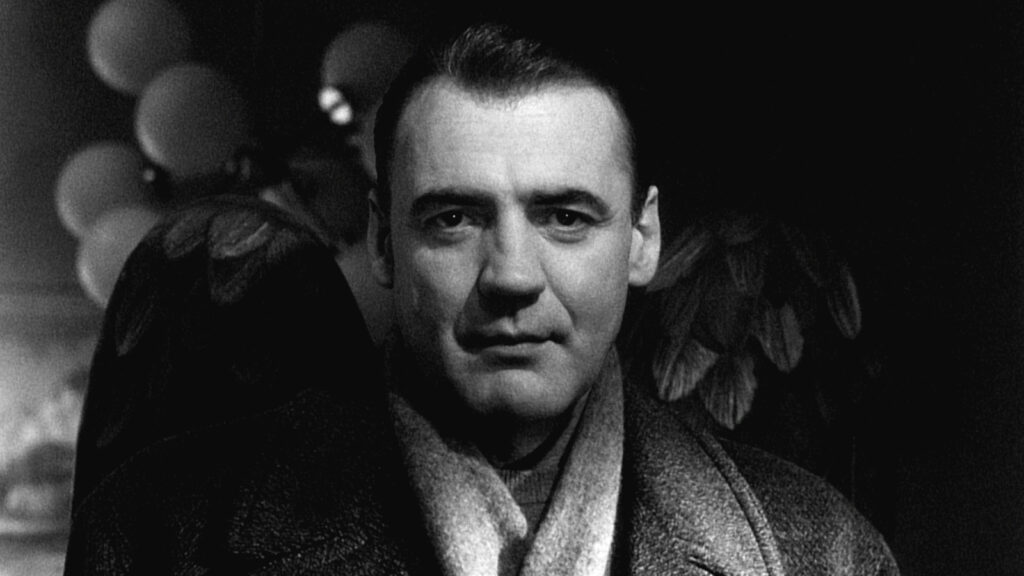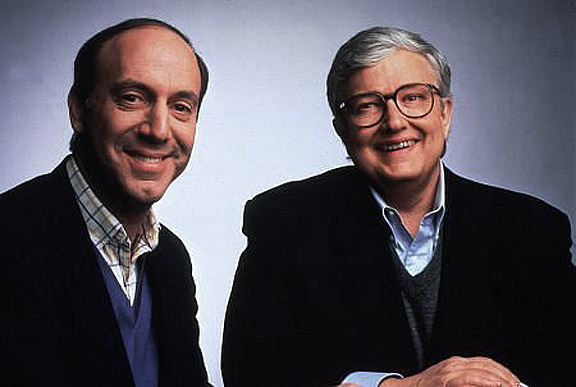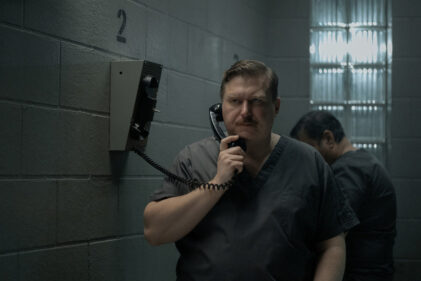God is in the details. It’s in how you remember the fairy lights twinkled in the bar the first time they told you they loved you. The look of pleasure at the the film’s opening titles on their face and you knowing then this was the last film you were ever going to see with them. The particular mug they drank their tea out of. That favorite brooch. Few films have focused on everyday divinity with more clarity and compassion than Wim Wenders’ “Wings of Desire.”
The story concerns angels and the humans they observe as they go about their lives in Berlin. These angels don’t carry flaming swords or appear in a pool of heavenly klieg lighting assuring people of God’s ultimate love and reason for their travails. These angels are somber but not unkind figures in long black coats. They smile at people absorbed in their studies in a library and contort their faces in agony when a suicidal man leaps to his death. The camera follows over their shoulders and glides above them. There is the sensation of being brushed by wings as the camera pulls up, up into the air.
Taking a cue from Powell and Pressburger’s “A Matter of Life and Death” the scenes from the angels’ viewpoints are in black and white. They are starkly beautiful in the way Ansel Adams photographs are beautiful. The angels wander through their daily rounds with a detached interest in the humans they watch. They hear our thoughts as a stream of chattering, murmuring ruminations on everything from mortality to neighbors playing music too loud. One day a particular angel Damiel (Bruno Ganz) finds himself drawn to a trapeze artist Marion (Solveig Dommartin) who soars and swims through the air with a chintzy pair of wings on her back. He’s startled when an American actor in Berlin for for shoot (a marvelous Peter Falk) senses his presence and begins to talk to him. Telling him, tempting him of the things mortal people know. Those easy to miss things that make the difference between passing through life and living it. He begins to fall in love with the trapeze artist and he begins to wonder if he could, if he should fall from grace to be with her. But in this remarkable film he does not fall from grace so much as fall into it. And from there the film blooms into color.

In a time when “Christian film” has become a euphemism for defensive tribal molotov cocktails like “God’s Not Dead” less interested in exploring the unknowable mysteries of God than preaching to the choir, crime and political correctness run amok, “Wings of Desire”’s embracing of the world as a path to happiness is radical. But only as radical the words attributed to Jesus telling his followers the kingdom of heaven was already here on Earth.
It’s strange to be an atheist and love this film so much. But not so much more strange than the leap of faith that belief requires. A faith that has to live in this world where horror and pain are as likely to find you as a fragile moment of happiness or peace. Religion leaves a brackish taste in my mouth thanks to being raised a Jehovah’s Witness. Most of the time I am grateful for the comfort—cold as it that comfort is—that the suffering racked up by those who deserve it least is not a result of God’ indifference or worse God’s plan but rather circumstance and the choices we make as individuals and as societies. And yet when I watch films like “Wings of Desire” there is a longing. A strange mirror of Damiel’s longing for mortal existence I wish sometimes I could believe in a truth beyond knowledge. Something greater than death. Something that lasts for always. Especially now when it feels like the world is falling down. The apocalyptic fantasies of my youth may have been empty threats but I’m in no way ready of able to deal with the daily assaults on truth and civilization with a large constancy of the population acting like an eager enemy at the gates pushing with all their might to tear it down.
But that’s one of the film’s great truths. The world has always been ending. In 1987, it looked like the decaying powers of the Cold War heading toward nuclear conflict. In 2017, it’s a decaying mad man cresting on a wave of xenophobia and toxic masculinity who is trying to steer us towards catastrophe. But the world has always had man men too. The bleak wall that slices Berlin in half, shot by cinematographer Henri Alekan as the hostile alien occupier it is, is a stark reminder of that. But that wall was just two years away from being smashed into pieces by a cheering crowd. Apocalypse is the traveling companion of Resurrection and they both lurk where you least expect to find them. They exist in moments as small as cup of coffee on a chilly day. But if you cherish those moments and string them together with the connective tissue of love, family, community it’s enough to make a life on. Heaven is within every moment of connection. And the messages of eternity have rarely found a better, or more human, form than this film.












